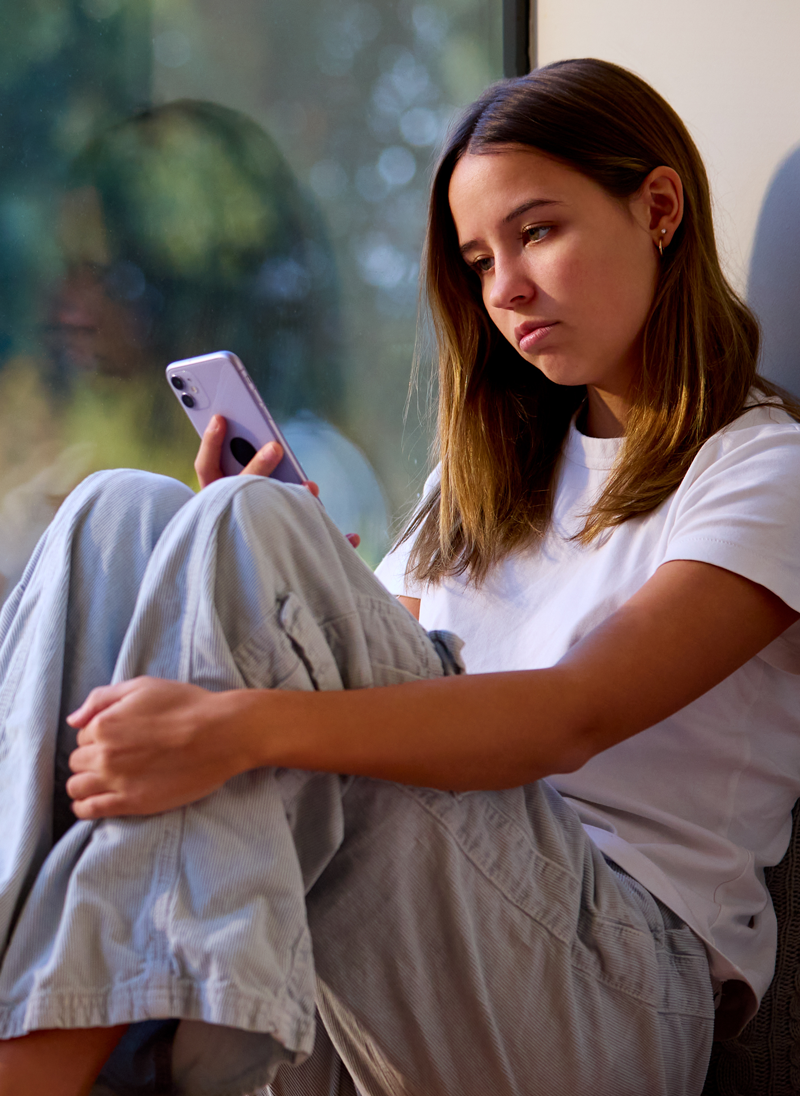
When the school year ends, devices often fill the hours once claimed by school, recess and playgrounds.
Nationally, Americans now average over 7 hours of screen time per day, according to Nielsen’s 2024 data.
For children, the numbers start early and climb quickly. Kids ages 8–12 spend an average of 5 hours and 33 minutes per day on screens (outside of school), while teens clock over 7 hours and 22 minutes, according to Common Sense Media’s 2023 Census on Media Use.
Closer to home, the 2023 Wisconsin Youth Risk Behavior Survey (YRBS) reported that 78.9% of Wisconsin high school students spend at least 3 hours on screens daily for reasons not related to school—and over 50% use screens past midnight, contributing to poor sleep and increased mental health challenges.
Why Screen Time Matters More in Summer
Excessive screen time can have a profound effect on a child’s posture and so much more. Research shows it impacts:
- Mental Health: A 2024 study published in JAMA Pediatrics found that high screen use in children and teens is associated with higher levels of depression, anxiety, and behavioral issues. Read the study summary.
- Obesity: The CDC warns that too much sedentary time, especially in summer, contributes to childhood obesity. CDC Childhood Obesity Facts.
- Sleep Disruption: A 2023 Sleep Health Journal review found that just one hour of screen use near bedtime increases insomnia risk by 59% and cuts nightly sleep by 24 minutes.
- Early Development: Children under 2 who exceed 2 hours of daily screen time are more than twice as likely to experience speech delays, per findings in the Canadian Medical Association Journal.
Adults Aren’t Immune, Either
Adults are also affected by extended screen time:
- Heart Health: A 2024 study in the European Journal of Preventive Cardiology found that each additional hour of TV watching in your 20s raises heart disease risk in middle age by 26%.
- Mental Health & Sleep: A randomized 2023 study from the University of Bath showed that reducing smartphone use by just 1 hour per day for 2 weeks improved sleep, focus, and overall mood.
How Pillar Health Can Help
If your child is showing signs of screen-related fatigue—such as trouble sleeping, mood swings, headaches, or weight gain—our Pediatric, Family Medicine and Behavioral Health teams at Pillar Health are here to help. We’ll work with your family to evaluate your child’s needs, offer guidance on healthier routines, and screen for any underlying concerns.
Southeast Wisconsin summers are too short—and too special—to be lost to screens. While devices can educate and entertain, real growth and lifelong memories happen in the sunshine, at the park, and around the dinner table.
This summer, let’s reconnect with what matters most and let Pillar Health support your family’s well-being every step of the way.
Call us at 262-656-0044 to schedule an appointment today.
Simple Ways to Unplug in Southeast Wisconsin
Summer is a great time to reset your family’s habits:
- Start the day outdoors. Before anyone reaches for their phone or TV remote – Bike the trails at Petrifying Springs, hike the Pike River Pathway, or swim at Simmons Island.
- Create screen-free zones like the dinner table, bedrooms, and car rides.
- Be the example. When adults put down phones, kids are more likely to follow.
- Check out the 101 Fun Things To Do list from Visit Kenosha, browse Things to Do in Racine, spend a day at North Beach in Racine, or catch a free concert at Lincoln Park. Looking for more ways to stay active? Consider joining the Kenosha YMCA or Racine Family YMCA.

Do not wait to schedule your appointment.
Kenosha Community Health Center has many appointment options in Kenosha and Silver Lake to meet your needs.
Schedule An Appointment








